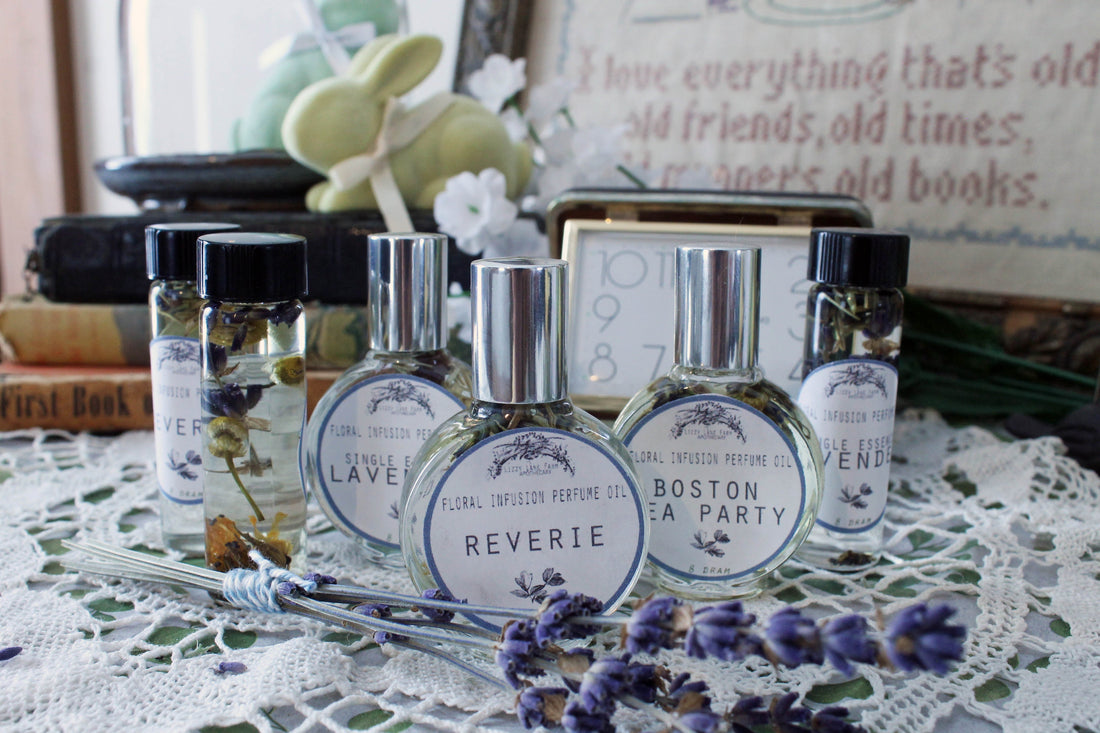
Handmade vs. Mass-Produced Perfume: What’s the Difference?
Share

Perfume is a personal, intimate experience that can evoke memories, emotions, and a sense of identity. But when it comes to choosing a fragrance, one important question often arises: Should I go for a handmade perfume or a mass-produced one? While both types of perfumes may offer appealing scents, the differences between them are vast and meaningful. In this post, we’ll explore the contrasts between handmade and mass-produced perfumes, from ingredients and production processes to the overall experience and value they provide.
The Art of Handmade Perfume
Handmade perfume is crafted with care, attention, and a deep understanding of the ingredients. Artisan perfumers often rely on time-tested methods, small batches, and natural ingredients to create a unique scent that tells a story. Each handmade fragrance is a labor of love, often reflecting the personal style and vision of the perfumer. These fragrances are typically produced in small quantities, allowing for a higher level of quality control and a more customized experience.
Handmade perfumes often feature natural, sustainable ingredients like essential oils, herbs, and botanical extracts. The blending process takes time and skill, as the perfumer carefully selects and combines ingredients to create a harmonious, multi-dimensional fragrance. This thoughtful approach ensures that each bottle of handmade perfume carries a unique, individualized essence.
For example, at Lizzy Lane Farm, we carefully craft our Floral Infusion Artisan Perfume Oils, using natural botanical ingredients and small-batch methods to create scents that feel as timeless and personal as the people who wear them. Each perfume is designed to evoke a connection to nature, history, and personal memory.
The Mass-Produced Perfume Industry
On the other hand, mass-produced perfumes are created by large companies that focus on producing large quantities of fragrance quickly and efficiently. These perfumes are typically made in factory settings, where ingredients are combined in large vats using industrial equipment. The goal of mass production is to create a fragrance that appeals to the broadest possible market, often relying on synthetic ingredients, preservatives, and chemicals to extend shelf life and reduce costs.
Mass-produced perfumes tend to use synthetic fragrances and chemicals, which can sometimes result in less complexity and nuance compared to handmade versions. These perfumes are designed for consistency, and every bottle of perfume in a mass-produced line will have the same scent, year after year. While they can still be pleasant, they may lack the personalized touch and depth that handmade perfumes offer.
Additionally, mass-produced perfumes often rely on marketing tactics, such as celebrity endorsements or mass appeal, to attract consumers. While these fragrances may have strong brand recognition, they tend to focus less on the artistry behind the scent and more on creating a recognizable identity for the brand.
The Differences in Ingredients
One of the most significant differences between handmade and mass-produced perfumes lies in the ingredients used. Handmade perfumes often feature high-quality, natural ingredients like essential oils, botanicals, and rare floral extracts. These ingredients can be more expensive and time-consuming to source, but they create a richer, more complex fragrance profile.
In contrast, mass-produced perfumes often rely on synthetic fragrances, which can be less expensive to produce and more consistent in scent. While synthetic fragrances can still be enjoyable, they often lack the depth and authenticity of natural ingredients. Many mass-produced perfumes also contain chemicals like parabens, phthalates, and alcohol, which can irritate sensitive skin or cause other health concerns.
At Lizzy Lane Farm, we believe in using natural ingredients that are both gentle on the skin and kind to the environment. Our handmade perfumes are free of synthetic chemicals and are made with love and care to provide a pure, authentic experience.
The Experience of Wearing Handmade vs. Mass-Produced Perfume
When it comes to wearing perfume, the experience can be vastly different depending on whether you choose a handmade or mass-produced fragrance.
Handmade perfumes often feel more personal. The scent is designed to evolve on your skin over time, creating a more intimate and unique experience. The complexity of natural ingredients means that the fragrance may change slightly with each wear, adapting to your body’s chemistry and the environment around you. This makes handmade perfume a reflection of you—something that speaks to your individuality and personal preferences.
Mass-produced perfumes, on the other hand, are typically more linear. The scent may remain the same from bottle to bottle and day to day. While mass-produced fragrances can still be beautiful, they tend to have a more predictable scent profile, offering less of the dynamic experience that handmade perfumes provide.
Sustainability and Ethics
In addition to the personal experience, there’s the matter of sustainability and ethics. Handmade perfume makers tend to take more care in sourcing their ingredients, often using organic, fair-trade, or wildcrafted botanicals that are sustainably harvested. These small-batch methods are typically less resource-intensive, and the production process is often more environmentally friendly.
Mass-produced perfumes, in contrast, may not prioritize sustainability in the same way. With large-scale production comes a higher carbon footprint, and synthetic ingredients often come from petrochemical sources, which raise environmental concerns. While some large perfume companies are making strides toward sustainability, the scale and nature of their operations can make it difficult to fully embrace eco-friendly practices.
Final Thoughts
Choosing between handmade and mass-produced perfume comes down to personal preference and values. Handmade perfumes offer a unique, artisanal experience with high-quality, natural ingredients, a personal connection, and a mindful approach to sustainability. Mass-produced perfumes, while still offering appealing scents, are more consistent, cost-effective, and geared toward mass appeal.
At Lizzy Lane Farm, we’re proud to offer a collection of handmade, natural perfumes that prioritize quality, authenticity, and sustainability. Whether you’re drawn to the complex layers of our Roots of Us Perfume Oil or the nostalgic notes of our Floral Infusion Artisan Perfume Oil, we invite you to embrace the art of fragrance and discover a scent that truly reflects your individuality.


